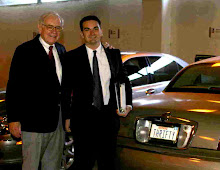The real reason for lemon laws.
When economist George Akerlof introduced the “Market for Lemons” in 1970 he revolutionized economists’ understanding of uncertainty. A lemon is a product of poor quality that is sold among other good quality products. But to the buyer, whether or not a product is a lemon is not apparent. Akerlof showed that these types of products can come to dominate the market and can even cause the entire market to collapse.
This is because uncertainty can result in “adverse selection” and that the bad drive out the good. This is extremely important to economic theory as it implies that informational problems can cause, at the least, only bad products to be sold and, at the most, the collapse of the entire market.
Because buyers of, for instance, used cars are uncertain about the car’s true quality, they are only willing to pay less than the expected true value of the car. The owner/seller of the car has information the buyer does not, namely, whether or not the car is a lemon. But since the buyer cannot tell the difference between a good car and a bad car, the buyer must offer the same price to sellers of both types. Realizing that the buyer will offer less than the true value of a good car to account for the uncertainty of the transaction, owners of good cars will not be willing to offer them for sale. Only owners of bad cars (lemons) will. Hence, the bad have driven out the good.
Another good example of the market for lemons occurs in the market for health insurance. Substantial informational asymmetry exists between an individual and his health insurer, as the individual clearly has an advantage when it comes to assessing his own health. Generally, riskier policyholders must pay higher prices. But as the price of an insurance policy rises, only higher risk individuals will choose to insure themselves. Thus, an element of adverse selection will have manifested itself. Insurers, because of their informational disadvantage, will raise premium rates to account for the increased risk of insuring very sick people. And as this price rises, only more and more risky people will choose to purchase the policy. Again, the bad have driven out the good.
This phenomenon has obvious and important governmental policy implications. For one, government programs such as Medicare may be necessary to prevent the bad from driving out the good in markets such as health insurance for the elderly, particularly given the life-or-death nature of health care.
For another, perhaps we need "lemon laws" to overcome these problems. So although lemon laws purportedly exist to protect consumers, such laws really just guarantee the stability of the market. Since government cannot overcome the information asymmetries in some markets, it instead guarantees that the buyer will be compensated should his purchase prove to be a lemon. As a result, the buyer is willing to pay much closer to the true value of a good product, and the market can be sustained. The seller is still permitted to sell lemons, but has little incentive to prefer lemons, as he may be forced to buy back the product if it proves to be a lemon.

